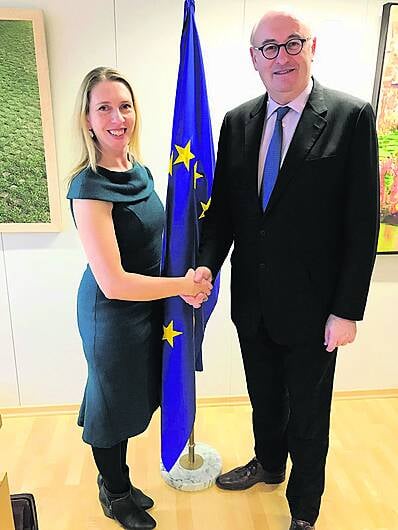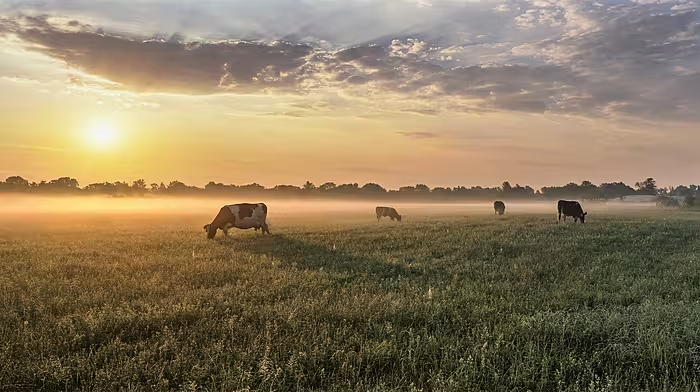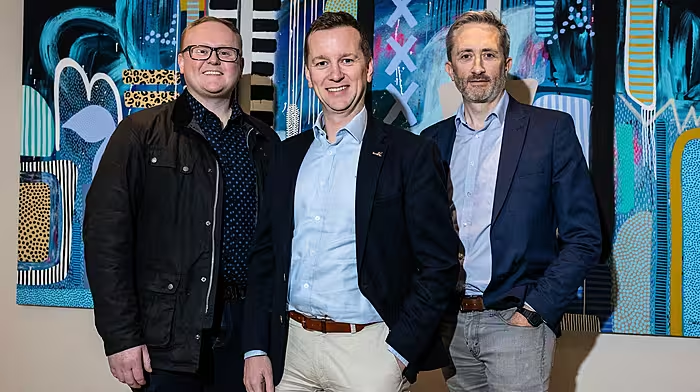EU Agriculture Commissioner Phil Hogan unveiled the Commission's Communication on ‘The Future of Food & Farming' on November 29th.
By Rose O'Donovan
EU Agriculture Commissioner Phil Hogan unveiled the Commission’s Communication on ‘The Future of Food & Farming’ on November 29th, setting out the vision on the future shape of the Common Agricultural Policy (CAP) for the period post-2021.
In an exclusive interview with The Southern Star’s Brussels correspondent Rose O’Donovan, the Irish Commissioner said a modernised and simplified farm policy framework was essential to achieving greater ambition on environmental and climate objectives. Speaking in his office in the impressive Berlaymont building at the end of last month, the EU’s farm chief described the new delivery mechanism – whereby national capitals, such as Dublin and Paris, would bear greater responsibility as to how they achieve broad CAP policy objectives on environment, climate change and sustainability set at EU level – as a ‘step change’ in the implementation of farm rules.
The ‘one-size-fits-all approach was not working in a Union of 500 million citizens, with significant differences in farm structures, production systems and climatic conditions,’ he added. In doing away with the current greening rules (30% of direct payments), ‘where the spectre of Brussels determines the width or length of hedges or the number of trees that should be in a field,’ the Commission is ‘taking a bold step,’ allowing a greater role for countries to define practices most appropriate to their regional context, the EU Farm chief said.
Looking ahead, he promised a reform that is evolutionary not revolutionary, granting more flexibility to Member States and one that tackles the new challenges facing the sector. The Commission would assess, approve and closely monitor the seven-year programmes – drawn up 18 months in advance of implementation – to ‘ensure that Member States pull their weight,’ he added.
The Kilkenny man – who received an Alumni Achievement Award from his alma mater, University College Cork (UCC), on November 24th – refuted claims that the creation of individual ‘strategic plans’ would lead to the re-nationalisation of the EU common framework and undermine the single market. ‘Throughout its many evolutions, the CAP has always remained a common policy … this will continue to be the guiding principle in the future, with the overarching goals – ensuring Europe’s food supply, supporting farmers and rural communities, and making agriculture more sustainable and climate-friendly including targets and objectives being set at European level,’ he responded.
Hogan also insists on the importance of the CAP in responding to well-established challenges and contributing to employment creation, growth and investment, harnessing the potential of the bio-economy and bringing research and innovation out of the labs and on to fields and markets. But he would not be drawn on elements related to the introduction of thresholds on direct support, as he was not willing to ‘prejudge the outcome of negotiations on the future Community budget.’
With European Parliament elections scheduled to take place in early June 2019 and the new Commission taking office on November 1st, 2019, the timetable for co-legislators to strike a deal on the future CAP is extremely tight, with commentators already pointing to the potential need for ‘transitional arrangements’ from January 1, 2021.
• Rose O’Donovan is Editor-in-Chief of the Brussels based publication AGRA FACTS and has been following the evolution of European farm policy for over 10 years.







